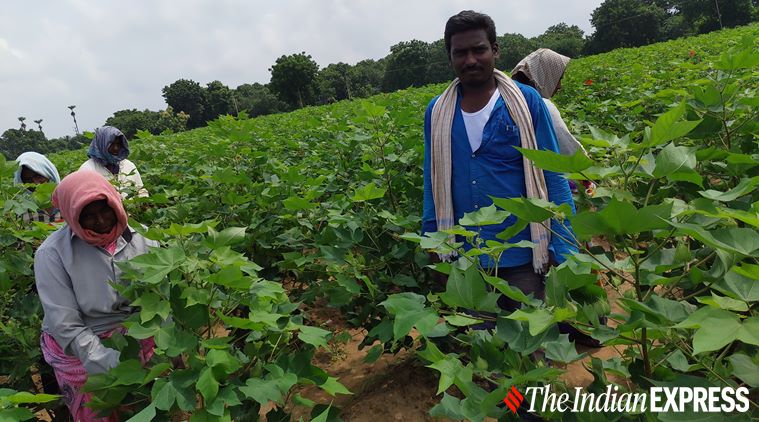 The CCI’s operations is run at the ginning and pressing units that corporations lease out at the start of the October-September cotton season. (Representational)
The CCI’s operations is run at the ginning and pressing units that corporations lease out at the start of the October-September cotton season. (Representational)
Close to 50 per cent of the 210 procurement centres run by Cotton Corporation of India (CCI) have resumed their operations, allowing farmers to sell their produce at the government-declared Minimum Support Price (MSP) of Rs 5,550 per quintal. Chances of private ginners actively procuring from farmers are slim given the headwinds the industry is facing of late.
The coronavirus (COVID-19) crisis and the subsequent lockdown has brought CCI’s MSP procurement operations to a standstill. Gin and press owners had taken a stance not to restart their operations in view of labour issues as well as fear of the infection.
Due to repeated protests by farmer groups, district collectors had issued notice to ginners who had failed to start their operations. The CCI’s operations is run at the ginning and pressing units that corporations lease out at the start of the October-September cotton season. Farmers bring their raw cotton into gin yards where it is pressed into bales of 170 kg each and sent to godowns.
Of 210 procurement centres, which were operational at the beginning of the season, 98 have restarted with the rest also expected to begin their operations soon. In Maharashtra alone, 16 centres have started operations. Till around April 15, the CCI had procured 84.65 lakh bales across the country. Industry estimates point to India producing 324 lakh bales this season, of which 278.76 lakh have already arrived in the markets till April 15. This would be the first time when CCI has continued its operations after March, at least in Maharashtra. Most of the kapas (raw unginned seed cotton), which arrives after March, do not meet the Fair and Average Quality (FAQ) parameters set by the corporation as it is mainly from the second flush of the crop.
The CCI’s operations comes at a time when the average traded price of kapas in the mandis across the country have nosedived to Rs 4,750.15 from Rs 4,965.85 per quintal, as of last month.
Domestic trends had reflected the price drop in international markets — with Cotlook A index, which is the international benchmark for raw cotton prices. The index, which had crossed the 80.2-cent mark in mid-January, has since then collapsed to the present 65.15-cent mark. Cotton traders have ruled out any drastic increase in prices given the long fallout of the COVID-19 crisis.
Pradeep Jain, chairperson of Kandesh Gin and Press Owners Welfare Association, said ginners were facing the problem of capital as trade had almost come to a standstill since the lockdown.
“Most of the yarn or garment makers have stopped their operations so there is hardly any trade,†he said. Other than labour, he said, locked capital was also a major worry for the industry with many ginners and yarn makers yet to receive payment for the trade they had done before the lockdown.
Arvind Jain, vice-chairperson of the welfare association and director of Cotton Association of India, estimated that a payment of around Rs 8,000 to 10,000 crore was yet to be relased to ginners, oil pressers and yarn makers.
“Another Rs 500 crore worth of payment for the two lakh bales exported before the lockdown is pending,†he said. China’s announcement of procuring 40 lakh bales of cotton has failed to excite the industry as they feel a majority of the contracts will be bagged by the US exporters. “We feel that trade will normalise only after June,†they said.